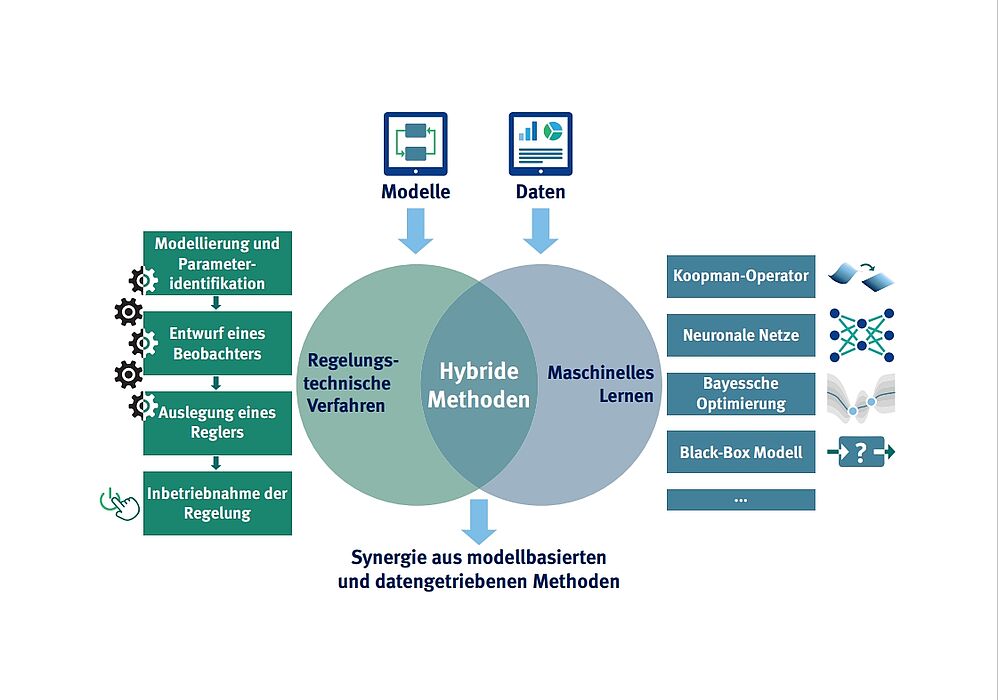The DART - Data-Driven Methods in Control Engineering project was created as part of the funding programme for young female AI scientists, which was launched by the Federal Ministry of Education and Research in 2019. The aim of this funding line was to increase the participation of women in German research on artificial intelligence and also to enable them to take up academic leadership positions.
The main objective of the junior research group's research work was the synergetic combination of model- and data-driven methods for control engineering tasks. The advantages and strengths of the respective methods were to be structurally retained: in the case of methods with physical models, their good interpretability, deeper insight into the system behaviour and the reproduction of causal relationships; in the case of data-driven methods, their ability to depict physically difficult-to-describe relationships even without in-depth specific application knowledge and their expandability through the possibility of further learning during operation. The focus of this project was therefore on the development of hybrid methods that combine model-driven processes with machine learning in order to achieve the best possible performance in control design. The results of the research work now show that hybrid methods can bring many advantages when technical systems cannot be fully described by classical physical models. At all stages of the control design process, the research work has shown that the use of machine learning can improve faulty models and thus also benefit the control of the system.

